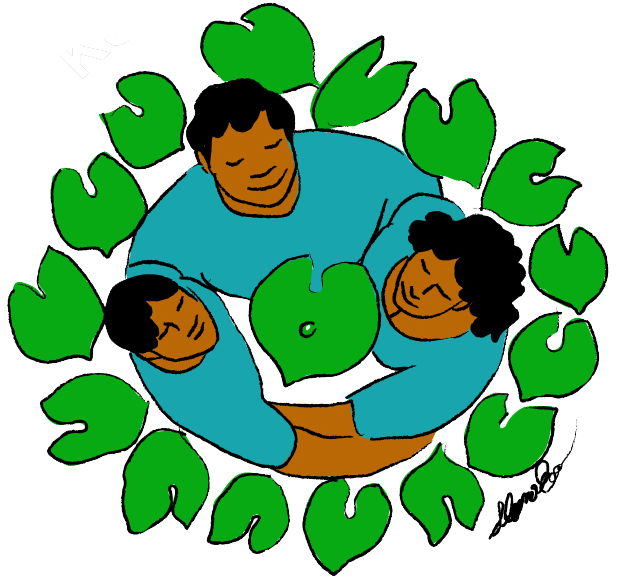Healing Our Food Systems
Reclaiming ancestral abundance. Photo by Allyson Ijima.
This is the first in a series of stories where we explore what ancestral abundance looks like and ponder the question: Should access to healthy food be a human right? We’d be honored if you’d join in the conversation here and on our social media platforms (Instagram/Facebook) to uplift KKV programs like Healing Our Food System. Together we can continue connecting people to ʻāina and health.
Throughout the pandemic, the need for access to food was great, after thousands of people lost their sources of income. Many households were not able to put food on the table. And although more and more food distribution and assistance programs began popping up, not all of those who needed help were able to get it. Even now, as the pandemic slows, families are still struggling to get back on their feet and provide food for their households, many of which do not meet the qualifications for food assistance programs. Healing Our Food Systems worked to catch the families who fell through the cracks, regardless of their qualifications.
Research Assistant Allyson Ijima prepares to distribute produce boxes. Photo by Lokai Kukahiko.
Produce boxes on their way to help families in need. Photo by Lokai Kukahiko.
Since August 2022, Healing Our Food Systems has helped more than a thousand Kalihi households get access to fresh, healthy food. The entire program is grant-funded and all funding goes directly to purchasing produce. “The City and County direct relief fund was about $100,000. We received the money for food and shelter purposes. And then we received a 6-week extension from Na Makawai,” explained Allyson Ijima, a research assistant for KKV’s Hui Hoaka. Hui Hoaka was created during the pandemic to connect families with medical, nutritional, and financial resources. The Hawaiʻi Foodbank helped to provide fresh produce from local farmers and Roots worked with Kahumana Farms to source all the fruits and vegetables during the Na Makawai extension. Produce boxes were distributed once a week.
The program also incorporated culturally-relevant produce, such as kalo to give families more familiar options when cooking. Staff distributed 3,797 boxes to more than 1,400 Kalihi households during the lifespan of the program. Ijima says the largest household the program has helped was a family of 15 people, most of whom were children. From Dental patients to Youth Services, Seams Wonderful, and Hoʻoulu ʻĀina program participants, Healing Our Food Systems was able to reach households through every department in KKV. Ijima said they wanted every patient to have an equal opportunity to receive produce.
“We kept trying to find new funding. It was so hard to make the phone call telling people we didn’t have enough for them. Those families are going to fall through the cracks.”
Some families were also able to use the produce as a source of preventative, natural medicine. Access to fresh food is not always an option for some families, therefore affecting their overall health. Ijima also recalled how the families who did receive food, were willing to help other families who did not. “One family said they had enough food for themselves for the week, so they shared what they had because they know what it’s like to not have food.” This exemplified the KKV motto of neighbors being neighborly. “Wealth does not always mean money,” Ijima said.
Fresh produce being prepped for distribution. Photos by Allyson Ijima.
After helping families for the past 12 months, Healing Our Food Systems has run out of funding. Ijima recalled how hard the last few months of the program were for her. “Each cohort had less and less. We kept trying to find new funding. It was so hard to make the phone call telling people we didn’t have enough for them. Those families are going to fall through the cracks.” Ijima is still very proud of the connections made through the program. KKV was able to help families during a time of need, without limiting them or having them “qualify” for a specific program. “Families told me it was a huge stress relief when they got the call to come pick up [a box] each week,” said Ijima. And while the program has sadly shuttered for now, there is one bright spot Ijima celebrates and cherishes as a success of the program: “Even if it was for a moment, we were able to give people sovereignty over their own food.”









